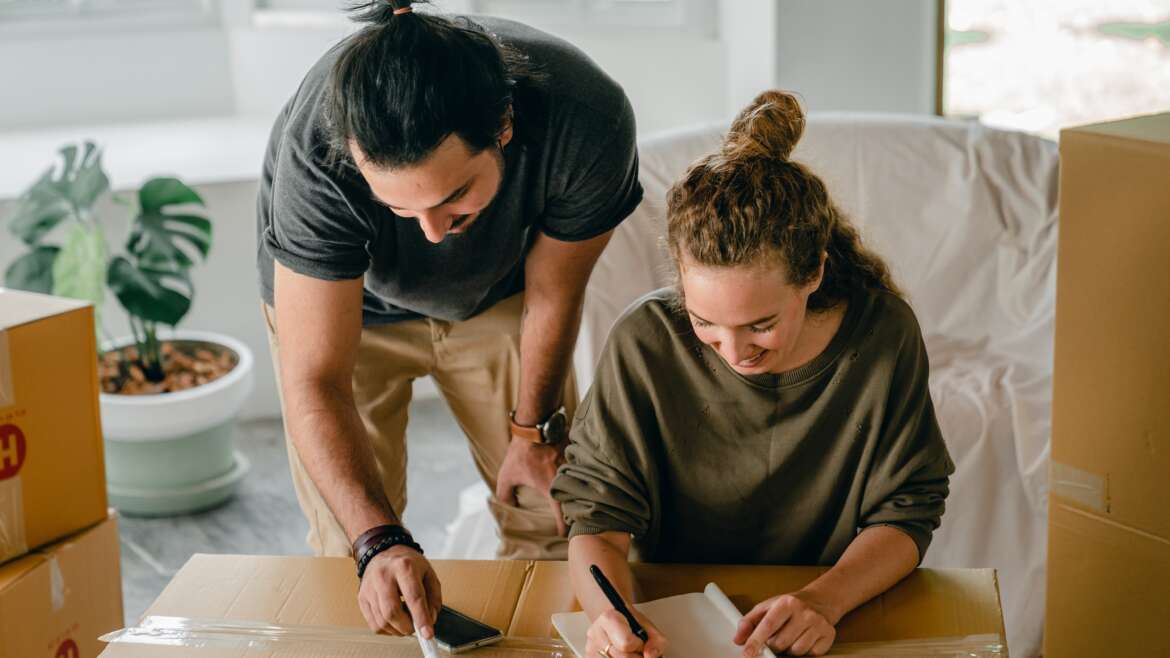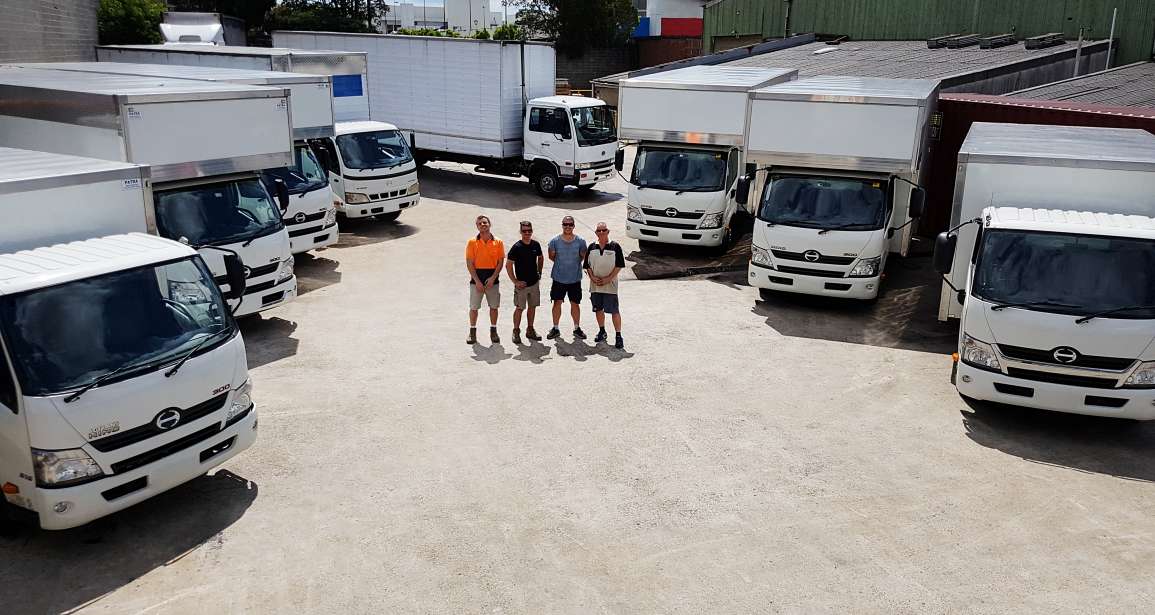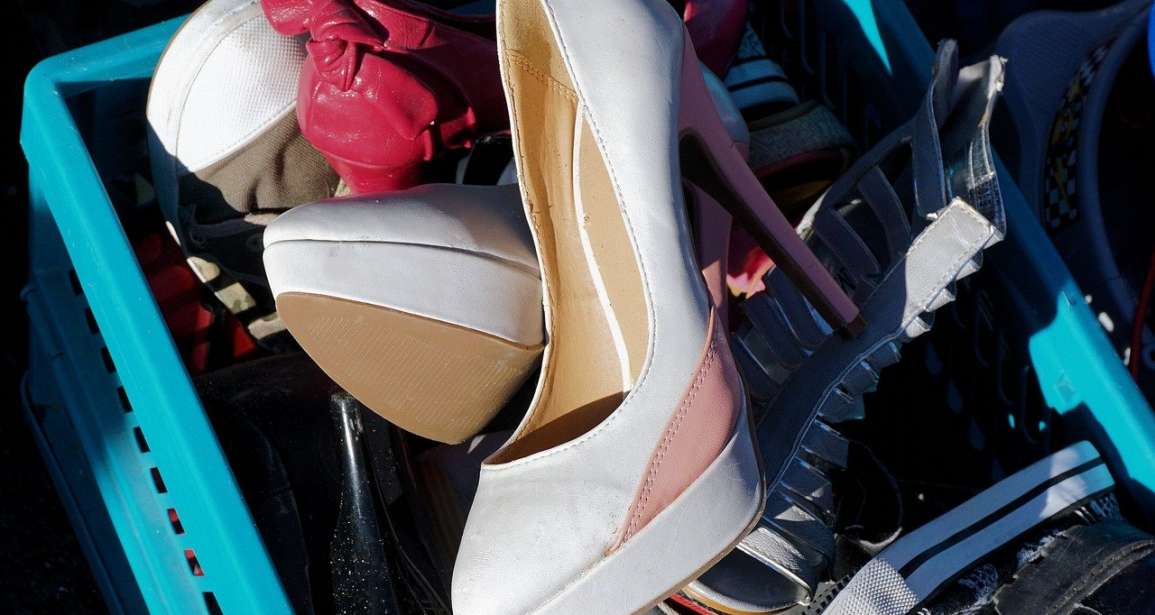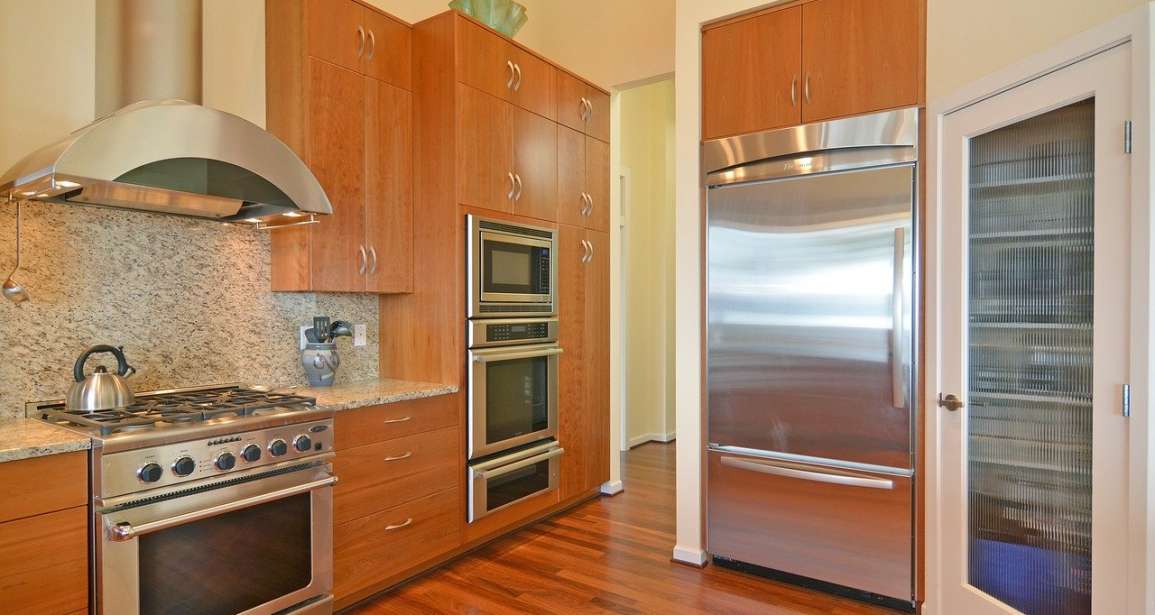The time has come. You’re now finally ready to move out. But the truth is, nothing is ever going to prepare you for your first-time moving experience. It’s always going to cost you more than you thought, take up so much of your time, and you’ll probably be lifting more boxes than you can count.
Whether you’re moving out from your family home to a place of your own or you’re about to leave your old town for a new address—this moving out of home checklist is made just for you.
When it comes to moving houses, we’re your experts—from packaging and unloading to delivery and assembly, you can rely on us. To help you get started, we’ve compiled this helpful moving house checklist that can make your moving day flawless. Check it out!
Create a timeline for your move
Start preparing for your move, the earlier you plan the date, the better. You don’t want to cram and panic during your moving day so it’s vital to keep things in order for everything to go smoothly. According to experts, the best time to prepare for your move is three months before your actual move-out date. If you’re still finding a house to buy or rent, a few months ahead will give you plenty of time to prepare for the unexpected.
Notify your landlord
Once your moving date is fixed, give written notice to your landlord. Hopefully, your moving house date will coincide with your lease’s end. This will save you from extra rent and mortgage at the same time. In fact, many leases require tenants to give their landlords at least 60 days’ notice when moving out. Be sure to check your lease agreement before making any drastic moving decisions. Some rental agreements have strict rules such as a six-month period before you can move out or stop paying rent. After this, a tenant can give notice without penalty.
Set up a realistic moving budget
Moving costs can easily go out of control if you’re not paying attention to how you spend your money. It will always cost more than you think. But you can minimise the costs by carefully budgeting all related costs.
So before hiring a moving company or committing to a DIY move, try to estimate your relocation budget. There are many factors to determine the final cost of your move but it will ultimately depend on your move’s size and the distance.
List all your moving expenses and create a tracker on your computer. This will help you evaluate the overall total cost of your move. The following are things you should include in your budget before moving house:
- Packing supplies and boxes
- Shipping costs
- Home and contents insurance
- Professional movers and real estate agent
Hire movers or ask help from friends
An important tip to make your moving experience less of a hassle: hire a professional moving company or ask for help from your trusted friends. You want your moving day to be as effortless as possible so don’t be shy to ask for help.
You don’t want to push this at the last-minute. You can research moving companies online or get recommendations from your friends or family. Remember to shop around for the best services to get the best deal for your move. Decide what’s practical for your budget. Also, take in account the size of your property.
Good moving companies can make your moving day effortless. They can even provide packing supplies and do almost every task for you. But if you want to save money, you can also simply ask them to move your stuff while you do the packing.
If you do hire a moving company to do all the heavy lifting, don’t forget to check reviews about them. You can also ask friends and family for recommendations. This is a very important decision so do your research diligently.
Collect packing boxes
Start collecting supplies that will be helpful for packing such as boxes and newspapers. You can get free boxes from groceries, office supply stores, or your local bookstores. Most of these establishments will be more than happy to hand them over for free while others might charge you a small fee. You can also check the moving company you hired if they provide plastic-lined boxes or sell moving boxes.
Get rid of your junk
Moving to a new place is equivalent to a fresh start. It’s also the perfect time to re-evaluate the things you’ve been keeping or hoarding in your old home. So, don’t bring the junk you have in your old family home into your new sanctuary. Start purging stuff you don’t need and use by cleaning your basement, attic, and outdoors first. Most likely items found there won’t be needed before your move.
Make an inventory of every item you currently own. Plan the items you want to keep and discard the junk. Only take the important stuff then donate or sell everything else that doesn’t add value to your life. You can even host a garage sale or post items online to get rid of those items days before your move.
Get the packing process started
Moving house is a step-by-step process and one of the most important steps is packing. Pack by room starting with the kitchen, bathrooms, living room, and bedrooms. Label each box by room and the type of content. Weeks before your move refrain from buying too much food you can’t take to your new place.
Make safety precautions when packing valuables such as important documents and paperwork. Try to keep them in a safe place first to avoid losing these files whilst in the midst of packing.
Also, don’t forget to pack a box of essentials that you’ll need on the first day of your moving into your new home. Essentials such as plates, cups, first-aid kit, medications, toothbrushes, snacks, and more. For more packing tips, visit our blog and follow our socials.
If you like professionals to handle moving and packing your valuables, Herbert Removals Sydney is at your service.
Cancel regular deliveries
Don’t forget to cancel deliveries and old service providers. Plan well by calling up your internet, phone, and utility providers weeks before your move. This will save you a lot of hassle and surprise charges. If you have subscribed for a newspaper or grocery service, you want to cancel any regular deliveries that go to your old address. If you don’t want to cancel them, simply redirect them to your new address.
Transfer your records
Moving across states? Collect and organize your important documents. Transfer those that need to be transferred. Examples of important documents include:
- Birth certificate
- Marriage license
- Insurance paper
- Bank records
- Medical records
- School records
- Veterinary records
Don’t forget to contact your healthcare providers so that you can transfer your medical records to your new location. If you have kids, inform the school of your new address. If you have pets, you can call your vet for a copy of your pet’s medical record and have them sent electronically to a new vet in your area.
Clean and Repair
Before moving to your next home, make sure you’ve done a proper cleaning in your old one. Most landlords require cleaning so you can get your deposit back. So don’t forget to remove carpet stains, bleach grouts, clean out hairs in the bathroom, and wipe down dust in high traffic areas. Also, start repairing appliances in your old home and taking care of everything that needs to be fixed before your move.
Here’s a detailed moving house repair/cleaning checklist:
- Remove nails and tacks from walls and cover up holes
- Paint wall marks and chips
- Scrub shower, sink, toilet, etc.
- Clean curtain and rugs
- Empty cabinets and drawers
- Clean mirrors
- Empty refrigerator
- Clean oven, stove, and microwave
- Dust and clean windows
- Vacuum and mop floors
- Take out trash
Moving day tasks
During your moving day do one last walkthrough of your entire home. Check every nook and cranny to make sure you haven’t left anything behind. Also, don’t leave the house with an open window or door. Secure everything and make sure it’s locked and closed including your garage and basement. Leave a last note for the new homeowner or renter of your old home to give them a nice greeting or heads up about the property.
Set up utilities
You’ve finally moved out and arrived at your new house. The first thing to do is to set up your utilities. These include everything from your internet, water, and electricity—to your trash and gas services. Some people who move into apartments may have these services already ready when they arrive. The only thing you need to do is get them transferred to your name so you can start paying for them. However, if your utilities aren’t turned on yet, you may have to call the company that takes care of these things in your area. To make sure everything is in order, check with the building manager at least a week before your move-in date. This will ensure you have access to everything plus you won’t get any penalty that will increase your utility bills.
Get renters and contents insurance
For a truly peaceful moving experience, don’t forget to get insurance. We all have our prized belongings, whether it’s your PC or that priceless vase your grandmother has given to you before she passed away. If any unfortunate event caused damage to these items, you may not afford the cost of replacing them. That’s where insurance helps a lot.
Most insurance has low monthly payments and can offer full replacement coverage of items you might lose. For example, if someone breaks into your home and steals your stuff, your insurance can cover the replacement of these items. Before signing up for a plan, be sure to compare different insurance companies first to always get the best deal.
Notify change of address
Fill out an official change-of-address form from the Australian Post Office. You’re going to need to notify everyone you live in a new place now. Not just your friends and family. So, don’t forget to notify change of address in every service you have. This includes your bank, doctor, dentist, club membership, etc. This ensures important mail goes to your address. You don’t want to get fined or miss out on important updates and information just because people can’t reach you.
Moving can be stressful and complicated. So before you say goodbye to your old home and move to a new state, make sure you’ve done everything you need to do. We hope this moving house checklist can help you settle in successfully in your new house.
Ready for your move? Let us help you make it as stress-free as possible. Hire Herbert Removals for your next big move.




